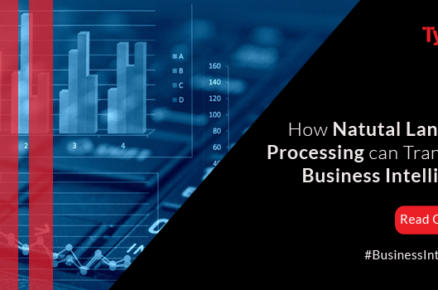Artificial Intelligence (AI) is evolving at a rapid speed and many companies are adopting AI for making business more customer friendly. AI is getting smarter day by day and letting many sectors to adopt to it. The banking sector is becoming one of the first adopters of AI. And just like other segments, banks are exploring and implementing the technology in various ways.
The rudimentary applications AI include bring smarter chat-bots for customer service, personalising services for individuals, and even placing an AI robot for self-service at banks. Beyond these basic applications, banks can implement the technology for bringing in more efficiency to their back-office and even reduce fraud and security risks.
Unsurprisingly, research firms are bullish on the potential of AI in banking. According to Fintech India report by PwC in 2017, the global spending in AI applications touched $5.1 billion, up from $4 billion in 2015. There is a keen interest in the Indian banking sector as well.
Future Of Artificial Intelligence in Everyday Life
Advent of AI banking in India
According to Accenture’s recent Accenture Banking Technology Vision 2018 report, 83% of Indian bankers believe that AI will work alongside humans in the next two years — a higher than the global average of 79%. “93% bankers in India said they increasingly use data to drive critical and automated decision-making. More partner-supplied customer data means a higher degree of responsibility for banks. Yet, 77% Indian bankers agree that most firms are not prepared to confront impending waves of corrupted insights from falsified data,” said the report.
“AI is not new to India. Research institutions and universities have been working with various AI technologies for decades, and especially in the area of social transformation. With enabling technologies becoming a lot more accessible and inexpensive, AI is now becoming mainstream, with large enterprises and start-ups looking at different opportunities. Our research shows that the adoption of AI has the potential to add nearly $1 trillion to the Indian economy in 2035. AI adoption is still in its nascent stages, and a lot more needs to be done to realise its full potential,” says Rishi Aurora, managing director, financial services, Accenture.
“Application of AI and ML (machine learning) to different functions within the banking industry has enabled them to offer a far more personalised and efficient customer service. By achieving that, banks have also been able to gain better insights into their customers’ preference and expectations from the bank. Accordingly, automation of back-end workflows has shown better outcomes. According to various industry reports, more than 36% of large financial institutions are already investing in such technologies, and close to 70% are planning to in the near future,” according to Darshan Shah, MD, South Asia, LenddoEFL, a Singapore-based fintech company.
Not just customer support
State Bank of India, the largest bank in India, last year conducted “Code for Bank” hackathon to encourage developers to build solutions leveraging futuristic technologies such as AI and Blockchain into the banking sector. Private banks like HDFC Bank and ICICI Bank have already introduced chat-bots for customers service. Some have even gone ahead with placing robots for customers service. Last year, Canara Bank installed Mitra and Candi robots at some of its offices.
“Payment companies are using AI to offer personalised payment experience to consumers. By applying AI and analyzing past payment patterns, payment systems can prompt the preferred payment instrument which best suits a purchase at the time of checkout. Say a consumer avails EMI option frequently for his big-ticket purchases, then the best EMI option is made available to the consumer at the time of checkout. Such personalised consumer experiences drive up consumer spending and creates stickiness to the product consumers are using,” said Varun Rathi, cofounder and COO, Happay, a Bangalore-based start-up focused on digital payment solutions.
Pune-based Persistent Systems’ chief architect, corporate CTO, Abhay Pendse lists out some common uses of AI in banks:
Fraud Detection: Anomaly detection can be used to increase the accuracy of credit card fraud detection and anti-money laundering.
Customer Support and Helpdesk: Humanoid Chatbot interfaces can be used to increase efficiency and reduce cost for customer interactions.
Risk Management: Tailored products can be offered to clients by looking at historical data, doing risk analysis, and eliminating human errors from hand-crafted models.
Security: Suspicious behaviour, logs analysis, and spurious emails can be tracked down to prevent and possibly predict security breaches.
Digitization and automation in back-office processing: Capturing documents data using OCR and then using machine learning/AI to generate insights from the text data can greatly cut down back-office processing times.
Wealth management for masses: Personalized portfolios can be managed by Bot Advisors for clients by taking into account lifestyle, appetite for risk, expected returns on investment, etc.
ATMs: Image/face recognition using real-time camera images and advanced AI techniques such as deep learning can be used at ATMs to detect and prevent frauds/crimes.
Not without challenges
A wide implementation of a high-end technology like AI in India is not going to be without challenges. From the lack of a credible and quality data to India’s diverse language set, experts believe a number of challenges exist for the Indian banking sector using AI.
According to Accenture’s Rishi Aurora, “A key challenge is the availability of the right data. Data is the lifeblood of AI, and any vulnerability arising from unverified information is a serious concern for businesses. Imagine for example, the risks that could arise from KYC compliance AI systems if the data sources are incorrect. Or consider the efficacy of a fraud detection AI system without the right kind of data. Structured mechanisms for collecting, validating, standardizing, correlating, archiving and distributing AI relevant data is crucial.”
Abhay Pendse echoes the sentiment, stating, “India has 150+ languages with sizable spoken population. Applications which use speech to text or text to speech rely on natural language processing (NLP) libraries and techniques. Banks can use the existing technologies to start with to support some major Indian languages, but in order to effectively reach out to wider population in India, much more progress is required on NLP front.”
“Data access and data privacy is a central aspect of any AI work banks do. These aspects will be of paramount importance with introduction of regulations in Europe such as GDPR (General Data Protection Regulation). GDPR regulation is currently applicable to European citizens, but India and other countries have their own data privacy regulations. Banks in India will have to build AI systems with GDPR and similar privacy regulations in mind,” he said.
Experts also have also stressed the need for more skilled engineers to drive the segment.
“The biggest challenge is the scarcity of trained human resources; the existing workforce is not familiar with latest tools and applications. Secondly, the AI technology is a big threat to redundant employees in the banking sector. The mass adoption of AI may cause a grave unemployment problem in the sector,” said Rachit Chawla , CEO of Finway Capital, a Delhi-based non-banking financial company.
“One of the important challenges that is faced by Industry and not just banks in India is unavailability of people with right data science skills. With only small number of good data scientists available to do AI work, the industry needs to work with universities in India to develop skilled data scientists as well as develop in-house training programs to train employees on data science skills. Also identification of right use cases for AI implementation with the help of domain experts and data scientists can help banks in successful implementation of AI technologies for banking functions,” Abhay stressed.
Originally Published on Livemint.com












